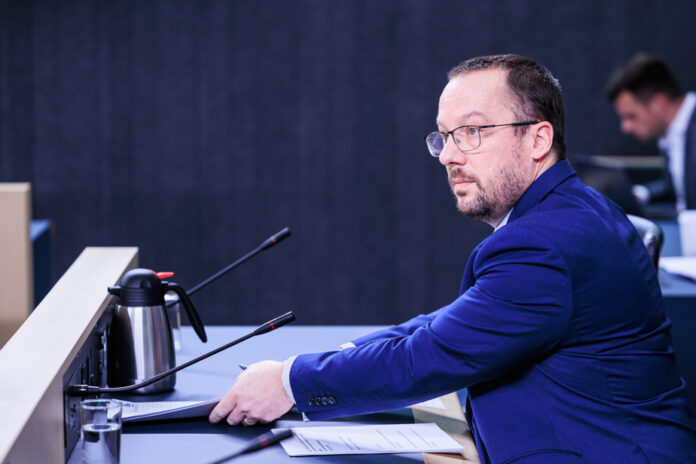“Allegations” have “come to the ears” of the QMJHL about events “of a sexual nature” that occurred in the 1990s.
This was revealed by Martin Lavallée, interim commissioner of the QMJHL, adding that an “independent investigation” had been launched. He made the statement Tuesday morning before the National Assembly’s Committee on Culture and Education, which resumed its work to shed light on violence in junior hockey.
In recent weeks, Canadian hockey has been rocked by shocking revelations that, over the past 40 years, junior-aged players have been abused by their teammates, including during initiation activities. Among other things, it is a question of sexual assault, physical and psychological violence and kidnapping.
The parliamentarians wanted to shed light on practices in the province. In parliamentary committee, Gilles Courteau, commissioner of the QMJHL for more than three decades, gave testimony whose several faults were exposed by various media. He resigned from his post a few days ago.
Mario Cecchini will replace him at the beginning of May. In the meantime, Martin Lavallée is acting as interim.
The latter, before the Commission, said he was aware of “past” cases of initiations that went wrong. Invited to clarify his thoughts, he mentioned the slippages, already documented, that took place at the Sherbrooke Phœnix in 2016 and 2017. The integration activities organized by the club’s veterans included, in particular, the insertion of a broom in the anus.
Mr. Lavallée remained more evasive on the other file, which seems to have been reported to the league authorities in the past few days. “When we were made aware of the situation, we conducted a quest for information, which led us to set up an independent investigation to ensure we got to the bottom of it,” the acting commissioner said.
Out of respect for the ongoing investigation “and for the victim,” he did not identify the team involved or even the season(s) involved. The events he referred to took place “in the first half” of the 1990s.
A little earlier, the Commission had received Michel Dorais, full professor at the School of Social Work and Criminology at Laval University, now retired.
The researcher made a case for “primary prevention” which he says is sorely lacking in junior hockey.
“We talked a lot about films and conferences, but prevention is not that,” he explained in his opening presentation.
At the base of this primary prevention, he identifies the “codes of life” that teams ask their players to sign. These codes are regularly invoked by the formations and even by the leaders of the circuit as a factor of change. However, these are “full of holes”, notes Mr. Dorais, who adds that once these documents are signed at the start of the season, “we don’t talk about it anymore”.
According to him, better designed programs with comprehensive support could be put in place relatively easily. But these initiatives come at a cost. In this regard, he points out that “when we talk about prevention, people don’t have money for it”. However, “repairing the damage is expensive”, he noted, citing as an example the sums to be paid to the victims in compensation or the hiring of crisis management firms.
Together with Natacha Llorens, director of player services for the QMJHL, he says he has been working for 18 months on a new prevention program. However, due to a lack of funding, its deployment has been delayed. He is therefore appealing to the levels of government to provide financial assistance of some $50,000 per year. The teams could also contribute, although it would be “unreasonable” in his eyes to wait for them alone.
Although the sordid stories of initiations that have generated controversy in recent weeks have been mostly from the 1980s and 1990s, “there is still cause for concern” about abuse in junior hockey, says Ms. .Dorais.
“Is it over, the initiations, the violence? Are we wasting our time here? “, had previously asked him the united deputy Vincent Marissal, in reference to the impatience that he himself perceived in the middle of hockey to move on to the next file.
“Things manifest themselves differently, in a more subtle way, not necessarily in the same places,” replied Mr. Dorais. We see [with the players] that things have improved, but we still have a long way to go. The danger, […] is that it is even more hidden. You have to be careful of that, too. »















